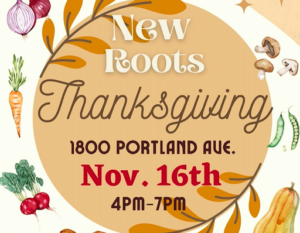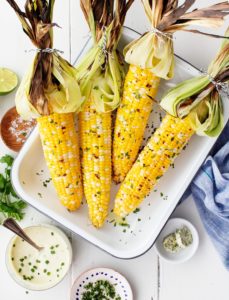
Greeting New Roots Family,
My name is Bulent Bakkal and I am a new member of the AmeriCorps VISTA (Volunteers in Service to America) program. I am happy to be working with New Roots this year, and am looking forward to meeting each of you at the Fresh Stop Markets. I’m excited to be working with New Roots to share Turkish recipes through videos and blogs under the title Zeliha’s Kitchen.
Who Am I?
I am from the small farming town of Kirklareli in Turkey. My hometown lies in the valley of Strandzha/Istranca (a mountain massif) in the European part of Turkey (Trakya/Trace). Kirklareli is bordered on the north by Bulgaria and the Black Sea and is very close to Greece. I have been in the U.S. since 2011, and have lived in Bloomington, IN, for eight years. Bulent has studied in Environmental and Sustainability as well as Geography studies at Indiana University. Then, I moved to Louisville last week. Next, I am planning to discover Louisville’s hiking and biking places as well as authentic, traditional, and restaurants and people. Therefore, I will need your recommendations to learn about the city well.
I have been in the U.S. since 2011 and have lived in Bloomington, IN, for eight years. I have studied in Environmental and Sustainability as well as Geography studies at Indiana University. As I moved to Louisville recently, I am planning to discover Louisville’s hiking and biking places as well as the local restaurants and culture. I’d appreciate any recommendations on how to explore the city!
Why am I Here?
I am to defend organic and fresh foods as fundamental human rights for all human and non-human beings [1]. All our bodies need fresh foods, clean water, and a healthy environment in order to be happy and healthy. According to some studies, the consumption of fresh and organic foods such as fresh fruits and vegetables reduces the risk of some chronic diseases such as diabetes, heart disease, and the risk of cancer [2]. Besides, such foods can serve as the roads to our happiness itself [3]. Therefore, I am here to help with New Roots’ goal of delivering fresh, organic, and local foods to everybody. Also, I believe that local organic farmers are an indispensable part of our sustainability, and thus consider New Roots to be a bridge between the farmers and the community. I am glad to work for New Roots.
Who is Zeliha?

Zeliha is my dear mother who lives with my dear father (Fikret) and little brother (Serkan) in my hometown. Zeliha is not just my mother; she is a cook, housemaker, gardener, needle-worker, and tailor. She is one of the busiest, talented, and hard-working people I know. Zeliha has been working at a coffee-restaurant in my hometown recently. My mother likes cooking and discovering new food recipes. She enjoys writing down her favorite discoveries in notebooks or on small slips of paper and has amassed quite a collection. Although she and my father have only graduated from primary school, they have always supported me in my education. I am grateful to them both.
I have titled my column “Zeliha’s Kitchen ” because I grew up smelling and tasting her foods in the kitchen. My mother’s kitchen was always my playground and cooking laboratory when I was a child. The kitchen’s utensils, species, and food ingredients were like my toys and I had my first cooking experiments there. I know that Zeliha always cooked our foods with fresh, natural, seasonal ingredients that make up Turkish cuisine.
Now, I cook Turkish cuisine at my apartment, just like Zeliha taught me. I always use fresh, organic ingredients to cook nutritious meals. I think that foods are a very important factor for my physical and mental health. However, I know that access to healthy and nutritious food is not easy for many of us today as a result of food deserts or a lack of time in our busy lives. Despite these obstacles, most of us have a kitchen in our home, and I’m excited to teach you how to cook some fast and nutritious dishes from Turkish cuisine.
What is Turkish cuisine?

Turkish cuisine (Turk Mutfagi) is a synthesis of Balkan (Albanian, Bosnia-Herzegovina, and Bulgaria), Mediterranean (Greek, Italy, and Morocco), Middle Eastern (Armenian, Kurdish, and Persian), and Central Asian (Turkmenistan, Uzbekistan, and Kazakhstan) cuisines [4]. Turkish cuisine harmonized in the Ottoman Empire between the 14th and early 20th centuries [5]. Cooking is a substantial part of life in the Mediterranean and Middle Eastern, and thus Turkish, cultures
The diversity of the food echoes the multicultural history of the Turks [6]. According to some gastronomy experts, Turkish cuisine is among some of the most delicious cuisines around the world [5]. Turkish cuisine’s relationship with the Mediterranean diet gives credence to its health benefits. The Mediterranean diet focuses on the consumption of olive oil, vegetables, fruits, herbs, nuts, beans, and whole grains. Plus, the diet is supported by a healthy lifestyle through its encouragement of daily exercise. It has even been shown to prevent some diseases [7]. By blending this diet with those of many other cultures, Turkish cuisine provides a unique twist on the healthy Mediterranean lifestyle.
As such, I am planning to share with you, our shareholders, and the community, some vegetarian and vegan dishes from my home country. I am excited to hear your feedback to improve my work. Thank you all of you for being a member of the New Roots community. See you!
References
[1] Z. Islam, “The Righ to Food: A Goverment Responsibility,” UAB Institute for Human Rights Blog, 27 February 2017. [Online]. Available: https://sites.uab.edu/humanrights/author/zeeislam/. [Accessed 19 July 2020].
[2] P. Glibowski, “Organic Food and Health,” National Institute of Public Health, vol. 71, pp. 131-136, 2020.
[3] Vanassa Apaolaza, Patrick Hartmann, Clare D’Souza. and Cristina M. Lopez, “Eat Organic-Feel good. The relationship between organic food consuption, health concern and subjective wellbeing.,” Food Quality and Preference, vol. 63, pp. 51-62, 2018.
[4] “Turkish Cuisine,” Wikipedia, 2020. [Online]. Available:
https://en.wikipedia.org/wiki/Turkish_cuisine. [Accessed 25 July 2020].
[5] Ali Batu and Heysem S. Batu, “Historical background of Turkish gastronomy from ancient times until today,” Journal of Ethic Foods, vol. 5, pp. 76-82, 2018.
[6] Oguz Diker, Taskin Deniz, and Adnan Cetinkaya, “History of Turkish Cuisine Culture and the Inflience of the Balkans,” IOSR Journal of Humanities and Social Science, vol. 21, pp. 1-6, 2016.
[7] Hannah Gardener and Michelle Caunca, “Mediterranean Diet in Preventing Neurodegenerative Diseases,” Neurological Disease and Cognitive Function, vol. 7, pp. 10-20, 2018.





Welcome to New Roots , looking forward to meeting you and would love to know more about you. I do keto and would love to see how your recipes and cooking can help with this.